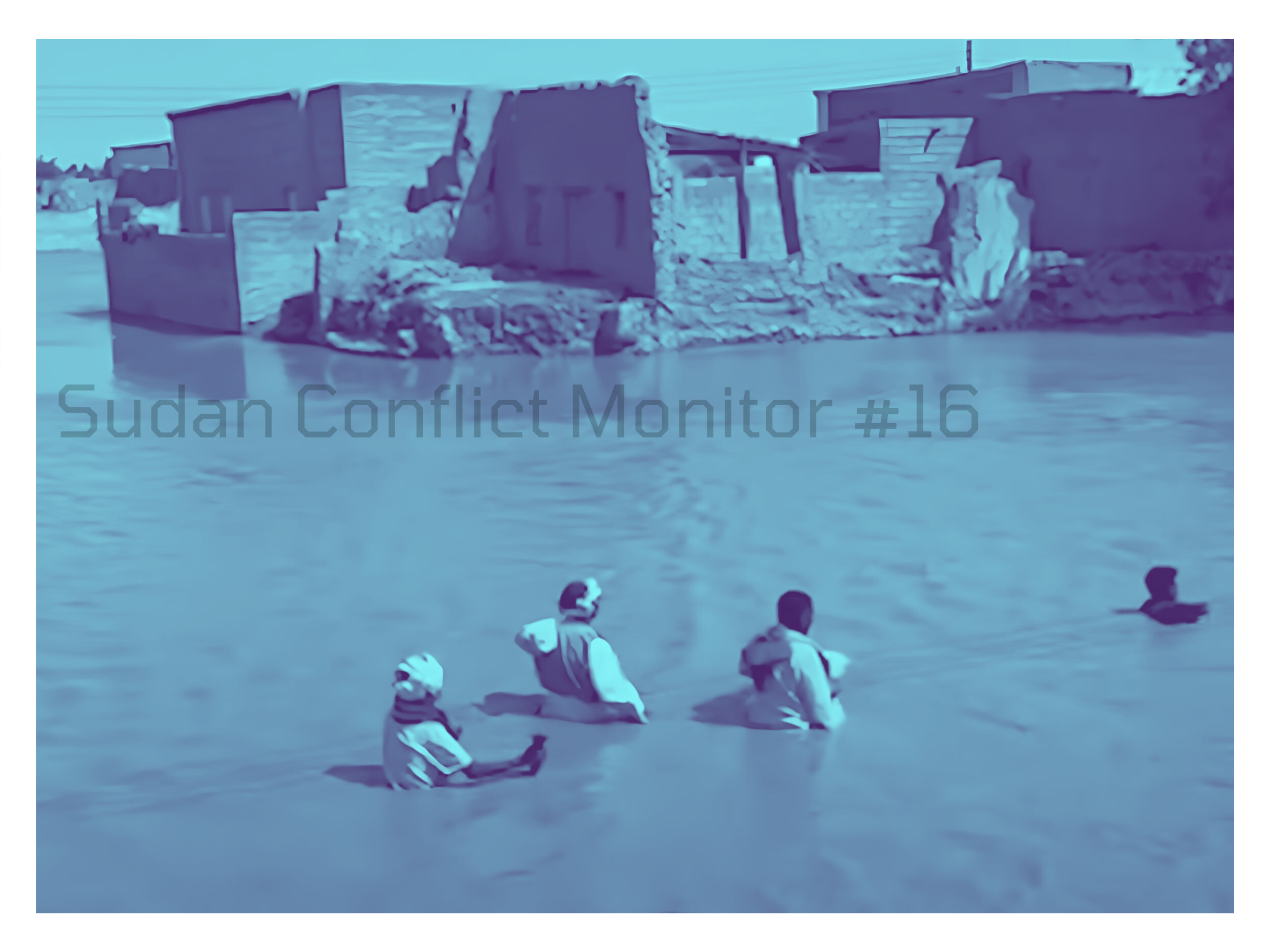Sudan Conflict Monitor #16

10 September, 2024
The Sudan Conflict Monitor is a rapid response to the war in Sudan written through a peacebuilding, human rights, and justice lens, reflecting on the most important stories in the country. Please share it widely.
Powered by Ayin, Human Rights Hub, and the Sudan Transparency and Policy Tracker
In this issue:
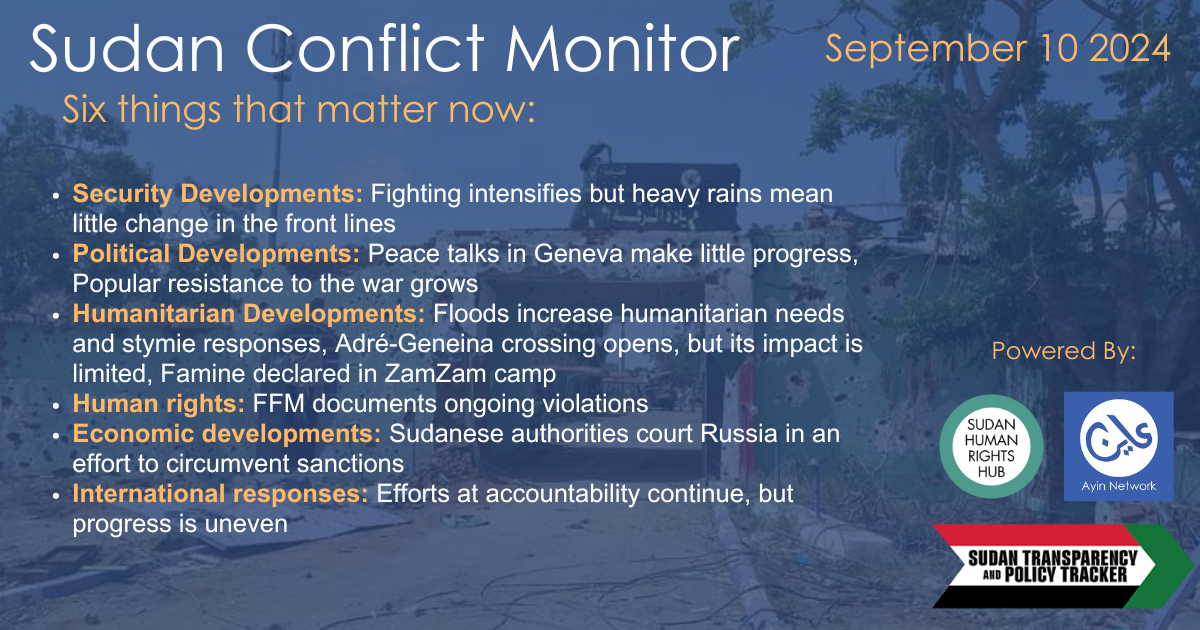
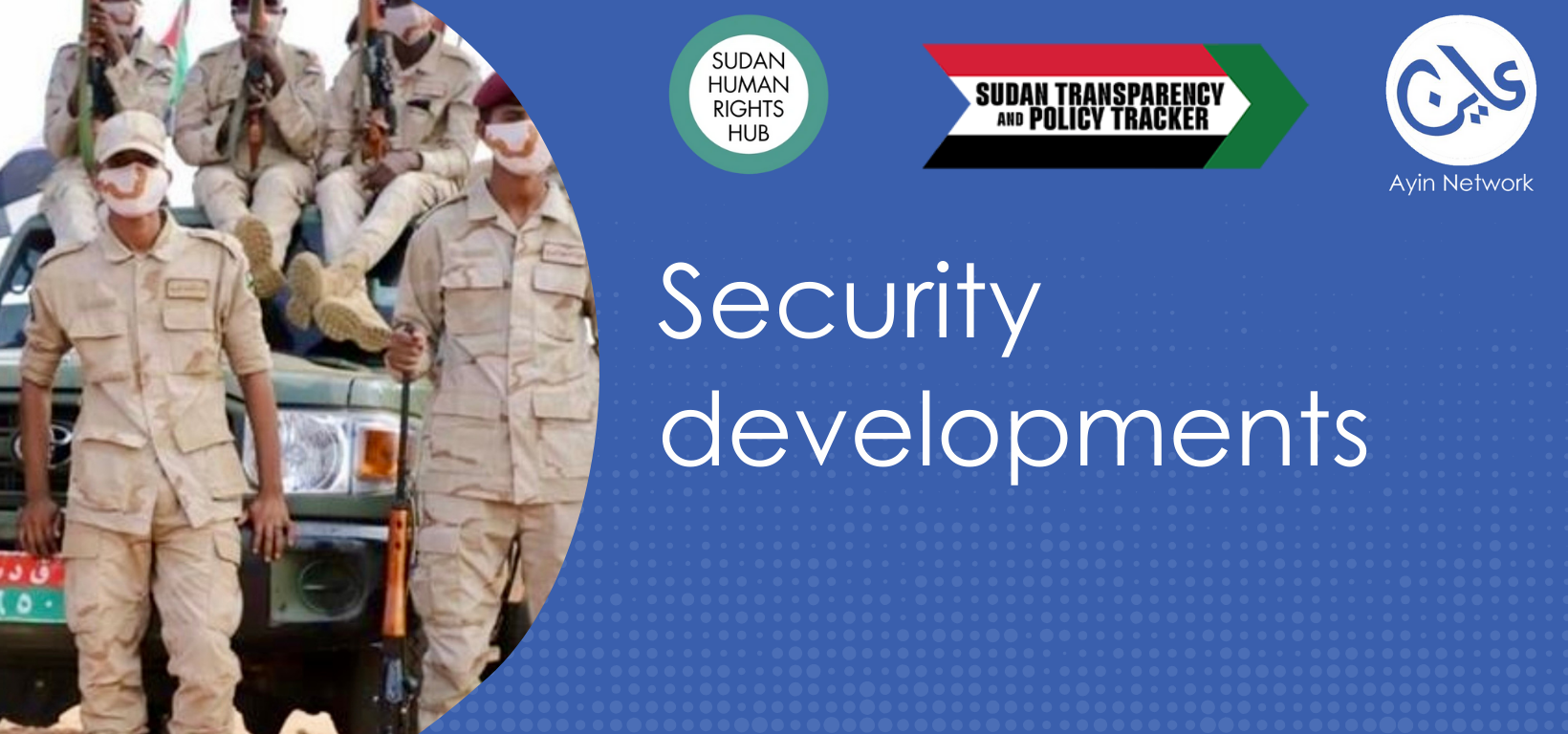 1. Security Developments
1. Security Developments
Although Switzerland mediators had acknowledged the possibility that the warring parties would seek to improve their respective battlefield positioning in the lead-up to ceasefire talks, they sought to encourage SAF and RSF to show restraint on the ground. While August saw a pause in significant territorial gains from the RSF, reversing the trend from July 2024, this may be attributed to the continuation of an especially heavy rainy season. Nevertheless, heavy fighting persists on existing frontlines with a noted uptick in both RSF artillery shelling and SAF airstrikes.
Hotspots have remained roughly the same as the prior month. Zaghawa armed groups with SAF logistical support continue to contest RSF’s presence across the North Darfur desert and deny RSF access to key supply routes across the Libyan and northeastern Chadian borders. In El Fasher, the capital of North Darfur, the RSF continues to besiege the SAF 6th Division, a joint force of Darfuri armed groups, and popularly mobilised mustanfreen – alongside a sizeable civilian population who are either unable or unwilling to evacuate through routes such as to Tawila and Tine.
Civilian sources residing in Khartoum reported RSF troop withdrawals from several neighborhoods in the Khartoum-Omdurman-Bahri tri-city area leading up to the Switzerland talks – claimed by RSF sources to be pre-emptive measures in anticipation of the popular demand for soldiers to leave civilian homes. SAF sources dispute RSF’s intentions, arguing that they are instead re-grouping forces for an assault on Sennar City. Piecemeal fighting continues in the southern areas of Sudan, including around Gedaref, Dinder, Blue Nile, and in parts of White Nile, although RSF ambitions to expand territorial gains appear to have been subdued by the death of a second senior commander in charge of the Blue Nile sector, Abdalla Tambai, and heavy rains.
The RSF siege of the SAF 22nd Infantry Division HQ in Babanusa, West Kordofan continues, albeit with little progress. At the same time, heavy fighting continues north of Bahri, with SAF and aligned Darfuri armed groups assaulting the heavily defended RSF positions in Al-Jaili Refinery and Qarri Free Zone. RSF raiding parties north of this position continue to threaten River Nile State, including shelling Hajar al-Assal village, notable as the home area for several prominent SAF-aligned Islamist leaders.
Amid the Switzerland talks, RSF leader Hemedti expressed frustration at SAF’s failure to attend and threatened to enact “many options at [RSF’s] disposal” – likely hinting at the continued expansion of the geographic scope of the conflict in coming weeks. At the same time, conflict between the Ethiopian National Defense Forces (ENDF) and the rebel Amhara “Fano militias” in early September, leading to the latter’s capture of Metema town on the border to Sudan, have led the SAF to receive fleeing ENDF forces and closure of the Galabat border town and crossing. Continued unrest on the Ethiopia side has complicated the security situation in eastern Sudan, where a handful of actors such as eastern Sudanese armed groups, the Tigrayan Defense Forces (TDF), SAF, SAF-aligned Darfuri armed groups, and RSF are all present in various capacities.
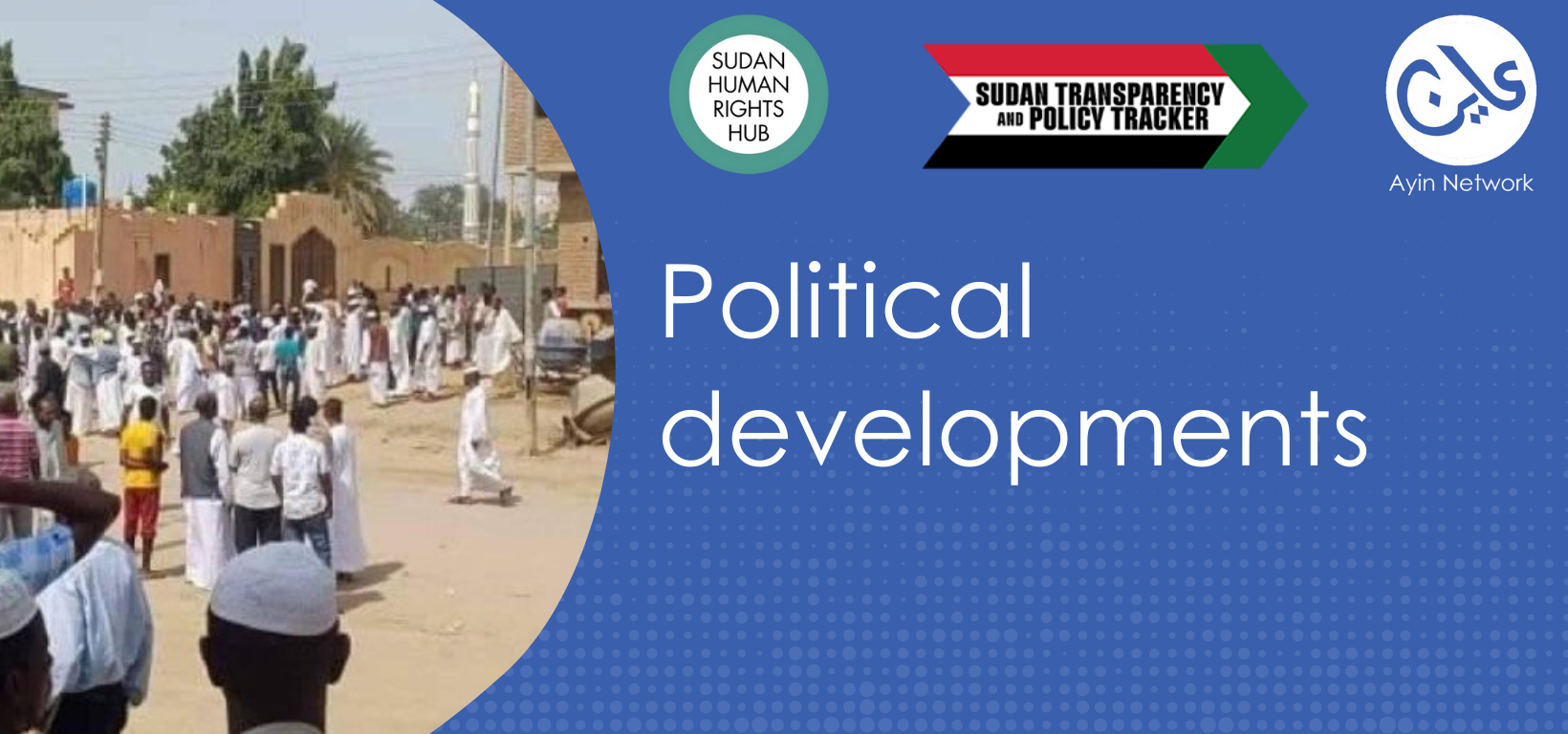 2. Political developments
2. Political developments
Peace talks in Geneva make little progress
Ceasefire talks, previously announced in July, commenced in Switzerland on August 14. The talks were co-hosted by the United States, Saudi Arabia, and Switzerland, with the United Nations, African Union, Egypt, and United Arab Emirates as observers. While the RSF dispatched a delegation headed by Brigadier General Omer Hamdan, Legal Advisor Mohamed Mokhtar al-Nour, Political Advisor Ezzadean al-Safi, and Head of Media Department Nizar Sayed Ahmed, SAF refused to attend the ten-day negotiation period, citing substantive concerns about the inclusion of the UAE, the failure to recognize a potential SAF delegation as a “Sudan government” delegation, and lack of trust in mediators’ abilities to monitor and enforce a future ceasefire on the ground.
The US had attempted to assuage SAF’s concerns in a pre-negotiation meeting hosted by Saudi Arabia in Jeddah a week prior, but stumbled into a series of misunderstandings with the SAF delegation headed by Minister of Mining Bashir Abu Namu, who is also notably the cousin of Sudan Liberation Movement-MM head Minni Minawi, fully aligned to SAF as of March 2024 and fighting against the RSF in frontline areas such as the North Darfur desert, El Fasher, northern Khartoum and Omdurman, and Gedaref and Sennar states. During these talks on August 20, US Special Envoy Tom Perriello had also traveled to Cairo – coinciding with US Secretary of State Antony Blinken’s visit to discuss US-Egypt bilateral relations with President Abdel Fatah al-Sisi, Foreign Minister Badr Abdelatty, and Intelligence Chief Abbas Kamel – in a last-minute effort to meet with a SAF delegation. The meeting did not materialize, with the US citing protocol issues between the SAF delegation and the Egyptian hosts and SAF casting blame on the US. The Switzerland talks concluded on August 23 with the formation of the “Aligned for Advancing Lifesaving and Peace in Sudan (ALPS) group, consisting of the talks’ mediators and observer countries. The Switzerland talks are also believed to have led to some humanitarian concessions from the warring parties and local arrangements on the ground in Sudan. In a closing ceremony and press conference, the US Special Envoy expressed his continued willingness to engage the warring parties, especially SAF, but hinted at plans to engage the UN Security Council to enforce an arms embargo on both warring parties. The US also condemned the negative role that Sudan’s Islamist former regime continues to play in fanning the flames of the war. Sources in Sudan, however, note that Islamists and other hardline SAF constituencies have retaliated by escalating a media campaign against both the Switzerland talks and US engagement specifically.
Civilian resistance to the war increases
When the Sudanese Armed Forces (SAF) declined to send high-level delegates to the mid-August proximity talks in Geneva, two notable reactions emerged. Islamist hardliners, believed to be driving the push for an all-out war against the Rapid Support Forces (RSF) regardless of the cost to the Sudanese people, praised the SAF’s decision as a patriotic act aligned with the public’s perception of the conflict as a defense of national dignity and sovereignty. Simultaneously, widespread disillusionment became evident as the high hopes that many Sudanese had placed on the Geneva talks for a negotiated settlement began to fade. Social media feeds reflected a rapid succession of spontaneous expressions of despair and frustration over a war that increasingly seems endless.
In response to an impromptu speech by Burhan during a garrison visit, where he reiterated the SAF’s conditions for engaging in peace talks—including the full surrender of the RSF and its relinquishment of territorial gains—Amin Hassan Omer posted on Facebook: “We love to listen to Burhan when he speaks like he did yesterday.”
On the other side, signs of popular exhaustion and defiance against the continuation of the war are growing. During an interaction in Northern State on August 29, a displaced woman confronted Burhan while other women chanted in support. “We are the women of Sudan,” she declared. “We are exhausted, Burhan. No to war, Burhan. We are living in the streets. We’ve been displaced for a year with no homes. The war has destroyed us.” Pro-war supporters tried to drown out the women’s pleas with chants of “One people, one army” but failed. It is doubtful that the millions of Sudanese who had to flee the war, and suffer the indignities of starvation and living on handouts, would support an endless war.
Days later, in El-Abaidia, an important gold market locality in River Nile State, residents chased away the state governor and the head of the popular resistance committee when they visited to inspect flood damage. For years, community groups of El-Abaidia have been in the forefront of a nationwide movement trying to alert authorities to the environmental risks of total contamination by mercury and cyanide residues in artisanal mining areas in the event of exceptional flooding. Their warning fell on deaf ears.
In Kassala, crowds surrounded the General Intelligence Service (GIS) headquarters, demanding accountability after a detainee, Amin Mohamed Nour, died in custody. Meanwhile, frustration in Port Sudan is palpable due to prolonged blackouts and fears of running out of drinking water after the collapse of the Arbaat reservoir, a key water source for the city. It should come as no surprise if popular protests erupted in Port Sudan as a result of all the hardships.
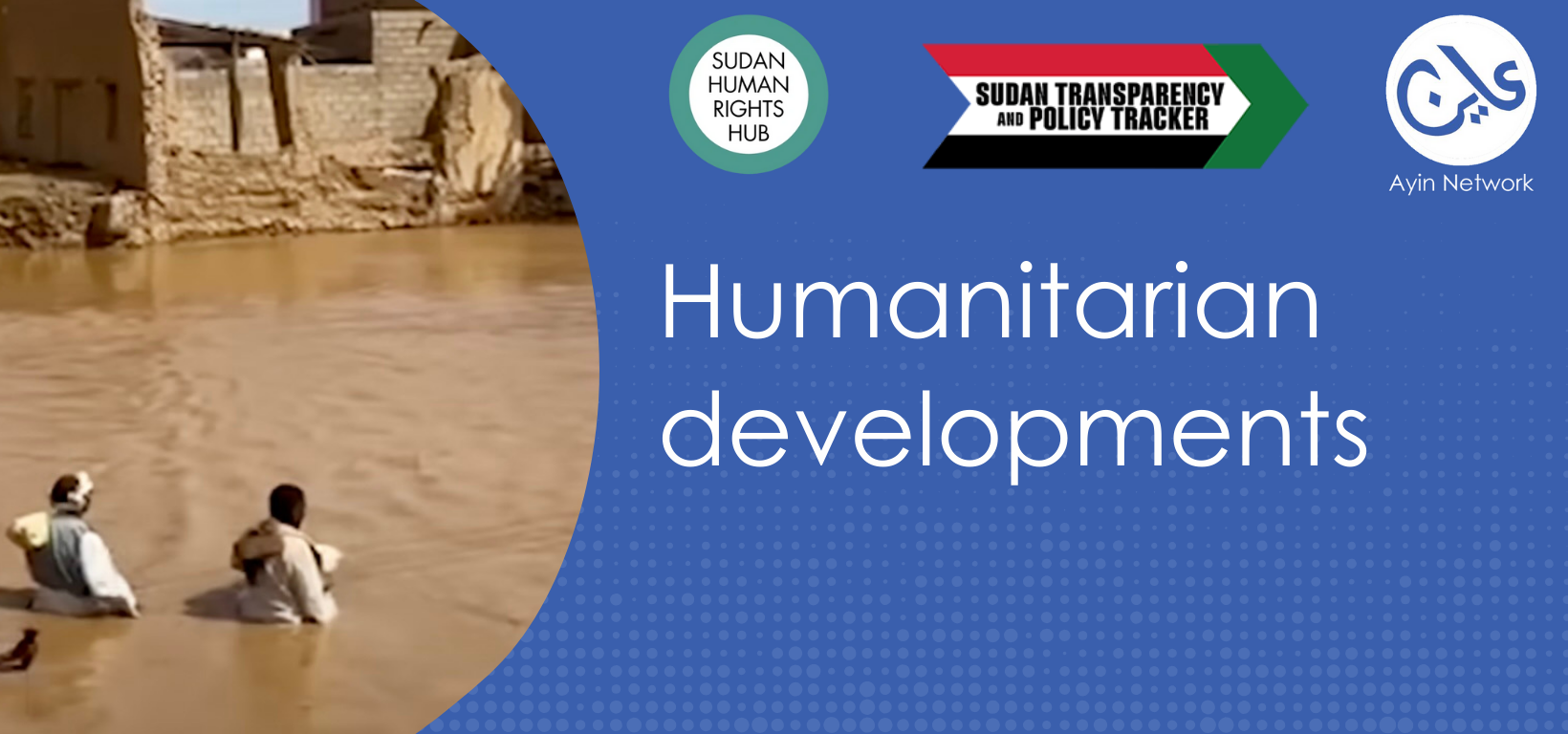 3. Humanitarian developments
3. Humanitarian developments
Floods increase humanitarian needs and stymie responses
Roughly 3,000 shelters for the displaced in Abu Shouk Camp in the northern part of El Fasher, capital of North Darfur State, collapsed due to heavy rainfall last week. According to volunteers from the Abu Shouk Emergency Room, people are now living in the open, and the stagnant pools left behind by the torrential rains will cause a multitude of diseases among the malnourished residents. Similarly, if you cross the country to the eastern city of Kassala, severe flooding has affected several shelters for the displaced, including the destruction of three reception centers built to support the conflict-displaced from Sennar State. “We were surprised while we were sleeping by the water flowing under us,” said conflict-displaced Kassala resident Arfa Adam. “The floods were high, so we took the children out and did not think about anything else. Now we are in the streets, and we cannot do anything.”
The rainy season always causes humanitarian needs in Sudan; the conflict has only exacerbated the situation, says Kassim Ali, an official from Sudan’s Meteorological Authority. Ali said that measures normally taken to mitigate flooding are not taking place due to the insecurity.
The UN estimated that in August, heavy rains and flooding in Sudan affected 317,000 people, displacing 118,000 and destroying 27,000 homes in 60 localities across 16 states. From 27 August to 4 September, the UN estimated another 172,500 individuals were displaced from flooding across 15 different states, with 41% of those affected previously displaced due to conflict. According to UN estimates last month, North Darfur (76,095 displaced), River Nile (58,825), Northern (53,924), and West Darfur (28,230) are the most affected states. However, the UN admits these figures may be woefully under-represented. According to the Red Crescent, over 24,000 houses were destroyed in the northern city of Abu Hamad, River Nile State, alone.
Estimating the mortality rate is similarly challenging, while Sudan’s Ministry of Health estimated 83 deaths in seven states across the country, the Red Crescent had counted 34 deaths and 588 injuries related to the floods in Abu Hamad City. Many of these deaths are related to waterborne diseases such as cholera. In early August, the Ministry of Health confirmed 556 cholera cases with 27 associated deaths across Kassala, Gedaref, Al-Jazeera, and Khartoum states. By the end of the month, the total number of cholera cases had reached 1,223, according to the ministry, and the death count had doubled, reaching 54 deaths.
Delivery routes for vital medicines, food, and humanitarian aid in general have stagnated across the country. Few commodities reach the populace, and those that do are prohibitively expensive, ratcheting up prices by 30 to 50 percent, according to several traders across the country.
Floods have cut off the roads linking Wadi Half to Dongola in northern Sudan, the only route for trade between Sudan and Egypt, says Khaled Babiker, a member of River Nile State’s Chamber of Commerce. According to Al-Tayeb Mohammed, a wholesale trader from Atbara, River Nile State, Sudan has become increasingly reliant—in some areas wholly dependent—on goods from Egypt since the outbreak of war. Atbara City’s major markets roughly supply a quarter of Sudan, including Khartoum’s sister city, Omdurman, and the west of the country. Cargo trucks now need at least two weeks to travel from Al-Dabbah in the north to Al-Nuhud, West Kordofan State, says local journalist Hamad Suleiman, escalating food prices as high as 50 percent.
A vital bridge, Azum Bridge, linking the five Darfur states collapsed from floods last month, the medical charity Doctors Without Borders, reported last month. Rain eroded roads linking West and Central Darfur in the Mornei area have effectively cut off West Darfur from other cities in the Darfur region, says Tijani Karshom, a civil administrative official working under the Rapid Support Forces. The timing could not be worse, Karshom says, as residents depend on food and life-saving medicines via the Zalingei-Geneina road. While commendable, the army’s agreement to open a humanitarian aid corridor in Adré, Chad, in early August has not allowed open access channels due to the flooded routes, humanitarian workers in Darfur and Chad said.
Heavy rains also destroyed critical infrastructure in the east on August 25, after extensive rain damage affected the Arba’at Dam, located outside of Port Sudan in Red Sea State. Located in the middle of a mountain range northwest of the eastern capital, the dam collapsed, killing dozens of people with 20 villages submerged in water. According to water expert Adel Barout, the dam represents the largest source of clean drinking water for Port Sudan, formally storing five million cubic meters. Port Sudan’s water consumption rate escalated during the summer as an influx of the conflict-displaced came to the city, according to a source in the Red Sea State Water Corporation. The dam’s destruction has led to a water deficit of roughly 70 percent, the same source added.
The rampant floods, expected to curtail this month, have also introduced unique challenges for residents in northern Sudan, from infestations of scorpions and snakes entering homes to the spread of deadly toxins used in gold mining. Floods that have swept through two northern Sudanese states have environmental experts worried that 700,000 tonnes of gold mining waste, including toxic mercury and cyanide, could seep into water sources. River Nile and Northern states produce the most gold among Sudan’s regions, providing the government treasury with about $750 million annually, according to Mohammed Al-Moez, an environmental researcher who specializes in tracking the effects of pollution resulting from prospecting and mining in Sudan.
Adré-Geneina crossing opens, but its impact is limited
On August 15, 2023, a SAF Sovereignty Council decision announced the opening of the Adre, eastern Chad to El Geneina, West Darfur border crossing for UN and humanitarian organizations – echoing private messages alleged to have been passed from senior SAF leadership to the international mediation team in the Switzerland talks. This decision was quickly welcomed by the RSF, which physically controls the West Darfur side of the border, alongside other pledges to facilitate cross-line humanitarian access routes from Al-Daba, Northern State, to North Darfur.
Sudanese political sources believe SAF granted legal authorization for international humanitarians to use the Adre-Geneina crossing to avert simultaneous pressures arising from its refusal to attend Switzerland talks and the declaration of famine in parts of Darfur, the latter of which is expected to continue to raise attention in upcoming United Nations meetings in New York. Indeed, the Switzerland ALPS group hailed the opening of the Adre-Geneina crossing as a measured step of progress. However, humanitarians operating on the ground also noted continued logistic, protocol, and security impediments later imposed by the SAF authorities that have yet to be fully resolved. SAF sources in Port Sudan also reported that Gen. Burhan’s decision clarified that the border crossing would be open for three months after which a re-assessment would need to be made.
A small number of humanitarian convoys have subsequently used the Adre-Geneina crossing in the month of August. However, the heavy rain season – in areas such as Wadi Azunga and affecting critical bridges in parts of West and Central Darfur – has created challenges for a full-scale humanitarian response. Additionally, both SAF and Darfur-based sources have noted emerging concerns that the RSF and its new humanitarian agency – the SARHO – have failed to resolve security concerns resulting from a lack of command and control over their forces, aligned militias, and criminal elements. SAF sources have continued to raise concerns that RSF may be using the Adré-Geneina route for revenue generation, such as via looting and exorbitant checkpointing, and for smuggling of supplies and weapons.
Famine declared in ZamZam camp
The Famine Review Committee recently reported that it was “plausible” that famine was underway in ZamZam camp. The head of the World Food Programme has reported that the last food distribution in ZamZam was carried out in April due to poor security related to the ongoing siege. In this context, the new agreement to allow the delivery of aid via Adre is unlikely to reopen access to the camp. The situation is only likely to worsen as food production in Darfur has collapsed as violence has kept farmers from their fields. It is also a signal that famine may be occurring elsewhere in Sudan, although a lack of data is preventing a formal declaration elsewhere.
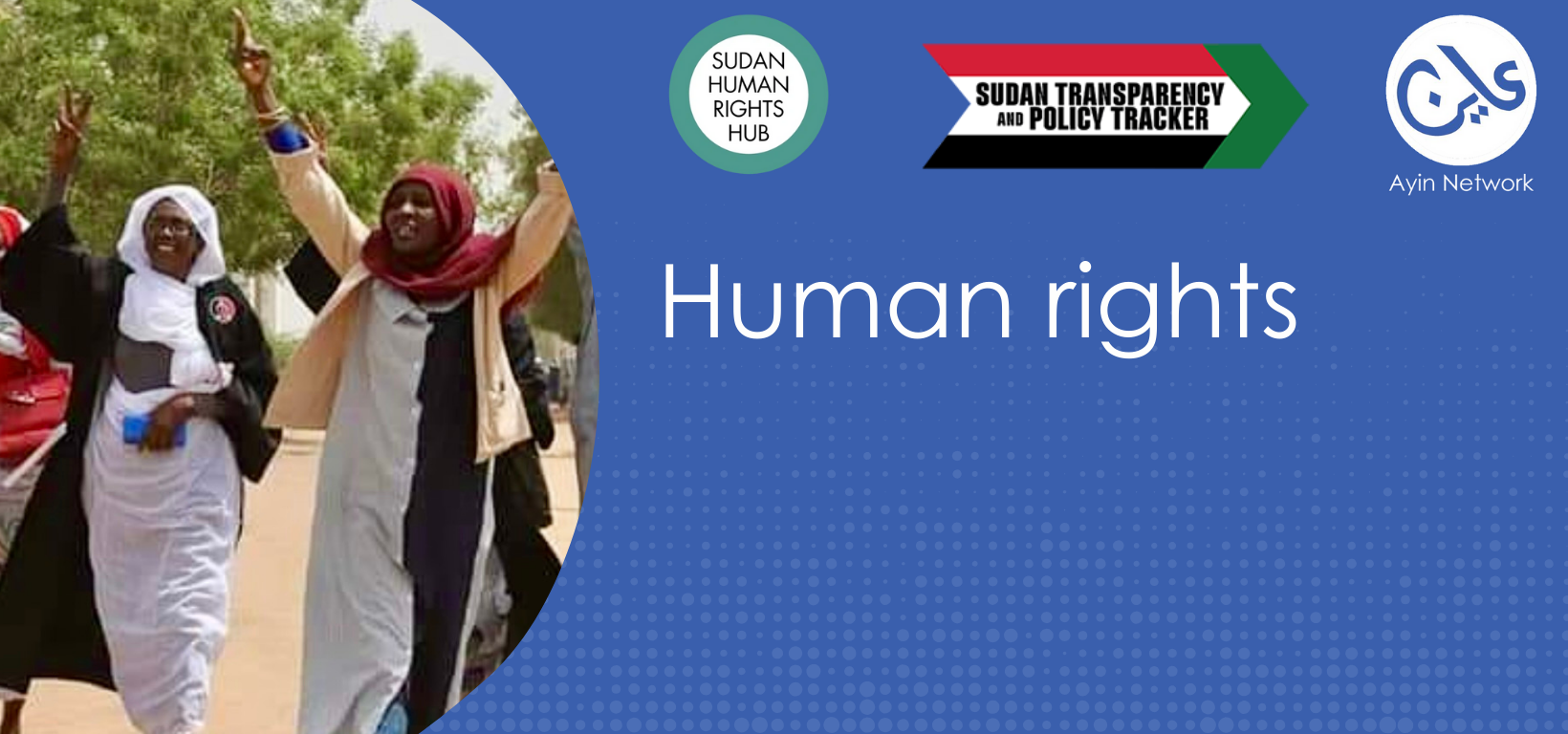 4. Human rights
4. Human rights
The Sudan Fact-Finding Mission (FFM) authorized by the Human Rights Council in October 2023 with a mandate to investigate, preserve evidence, and determine responsibility for violations, presented a report of its findings to date to the council in early September. The FFM has engaged extensively with Sudanese civil society to document the patterns of human rights violations across Sudan. In July 2024 the mission also conducted interviews with Sudanese victims in Chad, gathering evidence of rapes, disappearances looting, burning of homes, and use of child soldiers, among other crimes from refugees who had fled these violations.
The mission faces many challenges. It has not been fully staffed due to the UN’s financial crisis. This, alongside the constrained time frame which the mission has had to carry out its work and the challenges of accessing information in active war zones means that the report presented was not as comprehensive as hoped. In view of these challenges, a group of 29 Sudanese, African and international organizations, including Sudan Transparency and Policy Tracker sent a joint letter calling on the Human Rights Council to extend the mission’s mandate. The mission plays a uniquely important role in advancing accountability across Sudan as it, unlike the International Criminal Court which has a mandate only over Darfur, has a nationwide mandate.
The report offers an important overview of human rights violations since the start of the conflict. The report estimates that more than 18,800 have been killed since the start of the conflict and 10.7 million have been displaced. The report documents airstrikes and bombardments of civilian areas. Though not included in the report, these have continued to cause civilian casualties in the last month, with the bombing of Khamsa Dagayeg camp in Zalingei killing five on August 31, and bombings in Mellit on September 2, Krona market in Wad Medani on September 3 and in El Fasher on September 4 also causing casualties according to the human rights monitoring group Huquooq. The report also documents the pillage and destruction of civilian objects and infrastructure by both sides, though it notes that this was “predominantly by RSF and allied militia.” it also documents the systematic and coordinated attacks on Massalit in El Geneina including killings, torture, and rapes. It also reports that both sides have recruited children although this has been “systematic” on the RSF side. Both RSF and SAF have committed “widespread arrests and detention.” Serious incidents have continued over the past month. In Kassala, Al-Amin Mohamed Nur died after being tortured in custody, sparking protests in the city. The incident sparked protests precisely because it is emblematic of widespread crackdowns and arrests that have been reported across the country since the war began.
The report recommends deployment of a civilian protection force, expansion of the arms embargo in Darfur to the whole country, justice, and accountability, including through a complementary jurisdiction to be established to support the work of the International Criminal Court. The international community continues to make efforts to promote such accountability, but these have been slow and uneven.
prisoners. However, the fact of the matter is that both the RSF and the SAF have freed prisoners in towns under their respective control.
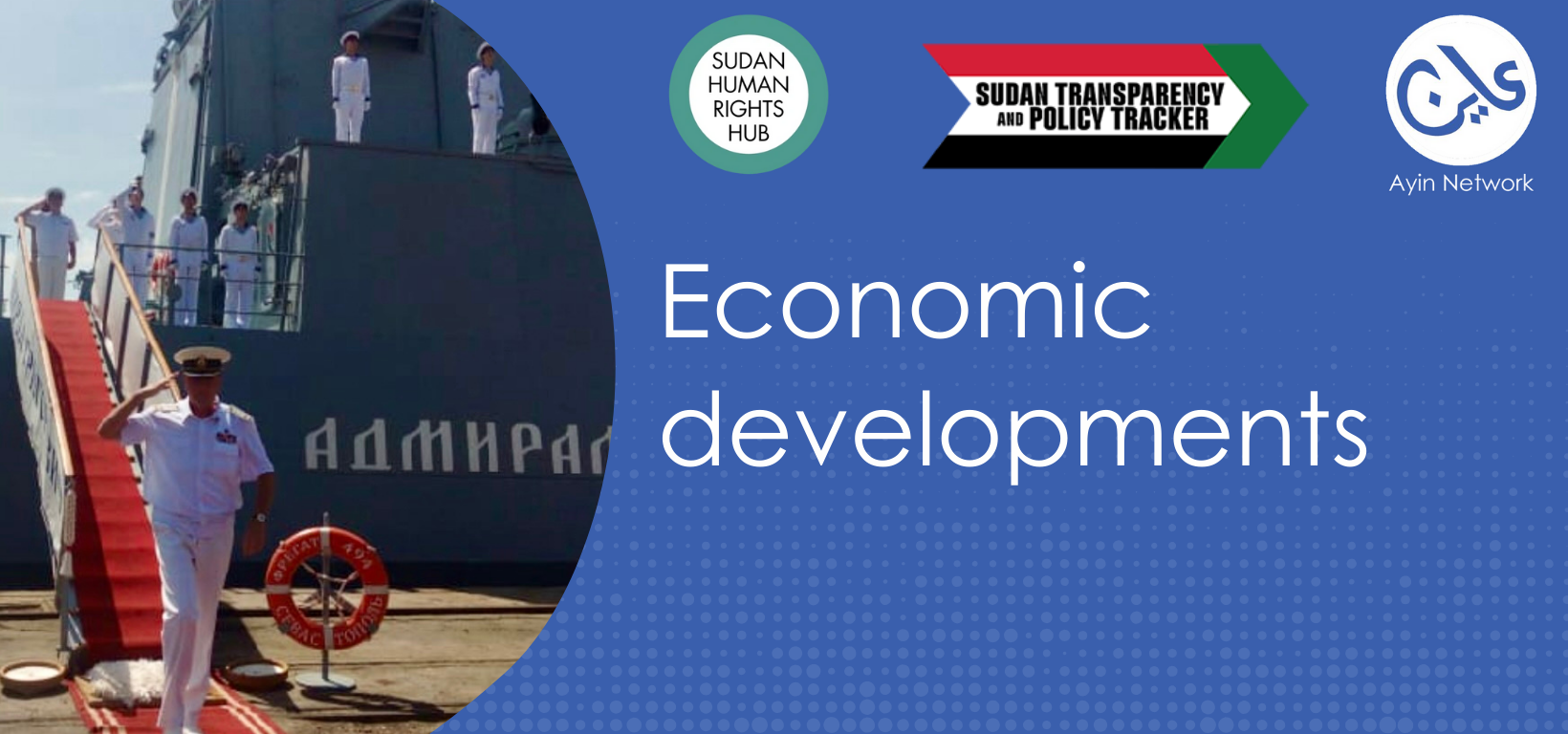 5. Economic developments
5. Economic developments
Sudanese authorities court Russia in an effort to circumvent sanctions
As the international isolation of the de facto Sudanese government in Port Sudan increased in response to its unwillingness to seek a negotiated end to the war, the de facto government in Port Sudan has turned East in search of alternative channels for their trade transactions and to evade biting US, EU, and UK sanctions that are limiting the ability of companies controlled by the SAF and the RSF to transact internationally.
It is in this context that a delegation of Russia’s central bank held talks in Port Sudan with the Governor of the CBoS in mid-August to discuss establishing corresponding banking relationships, opening bank branches in both countries, increasing imports and exports, and the settlement of transactions in local currencies. The two sides also discussed joint investment opportunities in vital sectors such as precious metals such as gold, where Sudanese and Russian banks can play a pivotal role in financing these projects.
The arrangements the two institutions discussed would greatly benefit Russia as the use of the ruble would allow it to purchase the Sudanese gold and thus circumvent the strict Western sanctions against Russian international financial transactions.
However, the CBoS is unlikely to have the financial resources necessary in either Sudanese pounds or foreign currencies to implement what is required to translate the discussions it had with its Russian counterpart into reality. In matters of transacting in local currencies, in large swaths of Western Sudan that are under the control of the RSF the population is forced to accept partially printed denominations of the Sudanese pound, lacking serial numbers for instance, as legal tender, as was reported by Atar. When it comes to foreign currency flows to the CBoS from the returns of commodity exports that resumed after the war, the CBOS issued a stern warning to 250 companies to deposit the mandatory percentages of the export revenues in the CBoS as its regulations require, or risk being barred from banking transactions and the registry of exporters.
CBoS faces a serious predicament. As noted by experts interviewed by Radio Dabanga, the largest exporters and importers since the war began are either state-owned enterprises entirely controlled by the army, or private businesses fronting for security companies. The security companies would otherwise be barred from entering into the financial transactions mediated by its business facilitators due to the large net of international sanctions that targeted companies linked to the SAF and the RSF alike since the beginning of the war.
In late July, the CBoS imposed a comprehensive banking ban on 157 companies due to their failure to return export proceeds to the Sudan. This followed a list of some 200 companies similarly banned from banking in March for the same reason. The banking bans appear to have worked in the case of 163 companies that the CBoS allowed to resume activities. However, CBOs’ succession of warnings and extreme measures underscore the difficulties it is encountering in securing the commitments of exporters and importers to comply with regulations that are necessary to ensure a steady revenue of foreign currencies to the state and the chaos prevailing in trading activities as a result of the collapse of state institutions since the eruption of the war in April 2023.
The first three weeks of July saw a precipitous fall in the Sudanese pound, which, by July 22, peaked at SDG 3,200 to the dollar from SDG 570 to the dollar in the pre-war period. The primary driver of this rapid depreciation is the ongoing war, which is causing the near-total collapse of the formal economy. In a press conference in March, Finance Minister Gibril Ibrahim revealed that the state had lost “more than 80% of its revenue,” with the remainder primarily dedicated to military expenditure, leading him to admit that “military expenditures are bankrupting the state.”
Contributing to the pound’s sharp decline is reportedly a rush to the dollar by the Bank of Khartoum, Sudan’s largest commercial bank, and leading importers. On July 25, the Central Bank of Sudan announced a partnership with the Bank of Khartoum to establish a portfolio with a billion-dollar capital to finance the purchase of strategic commodities, namely refined petroleum products, wheat and wheat flour, agricultural inputs, and medicines. The portfolio aims to stabilize the Sudanese pound and the economy at large, as well as curb inflation.
The CBOS statement indicated that efforts were underway to attract other local and regional contributors to capitalize the portfolio but did not specify who. Another reason for concern is a statement by the CBOS’ governor to the official Sudan News Agency on the corporate governance of the portfolio that indicates a lack of awareness of the notion of conflict of interest: “the portfolio whose general assembly is chaired by the Governor of the Central Bank is subject to supervision and inspection by the Central Bank.”
Local contributors would likely include leading importers facilitating purchases for the SAF. However, foreign shareholders might be discouraged by the risk of their financial contributions being used to subsidize war expenditures. It is also unlikely that the CBOS could rely on self-financing from Sudan’s exports of livestock, gold, and agricultural products.
Atar investigative magazine reported on July 8 that despite the destruction of Sudan’s largest industrial, commercial, and infrastructural enterprises, livestock exports—mainly to Saudi Arabia and Egypt—were thriving, earning a historic record of $879 million since the war began. However, many exporters failed to repatriate and deposit a mandatory percentage of the sale value abroad back into Sudan, leading the CBOS to issue an ultimatum to some 250 companies to comply with its export regulations or face erasure from the registry of exporters. Experts doubted the effectiveness of the ultimatum, noting that the largest livestock and processed meat exporters were companies controlled by the SAF and prominent traders close to the military.
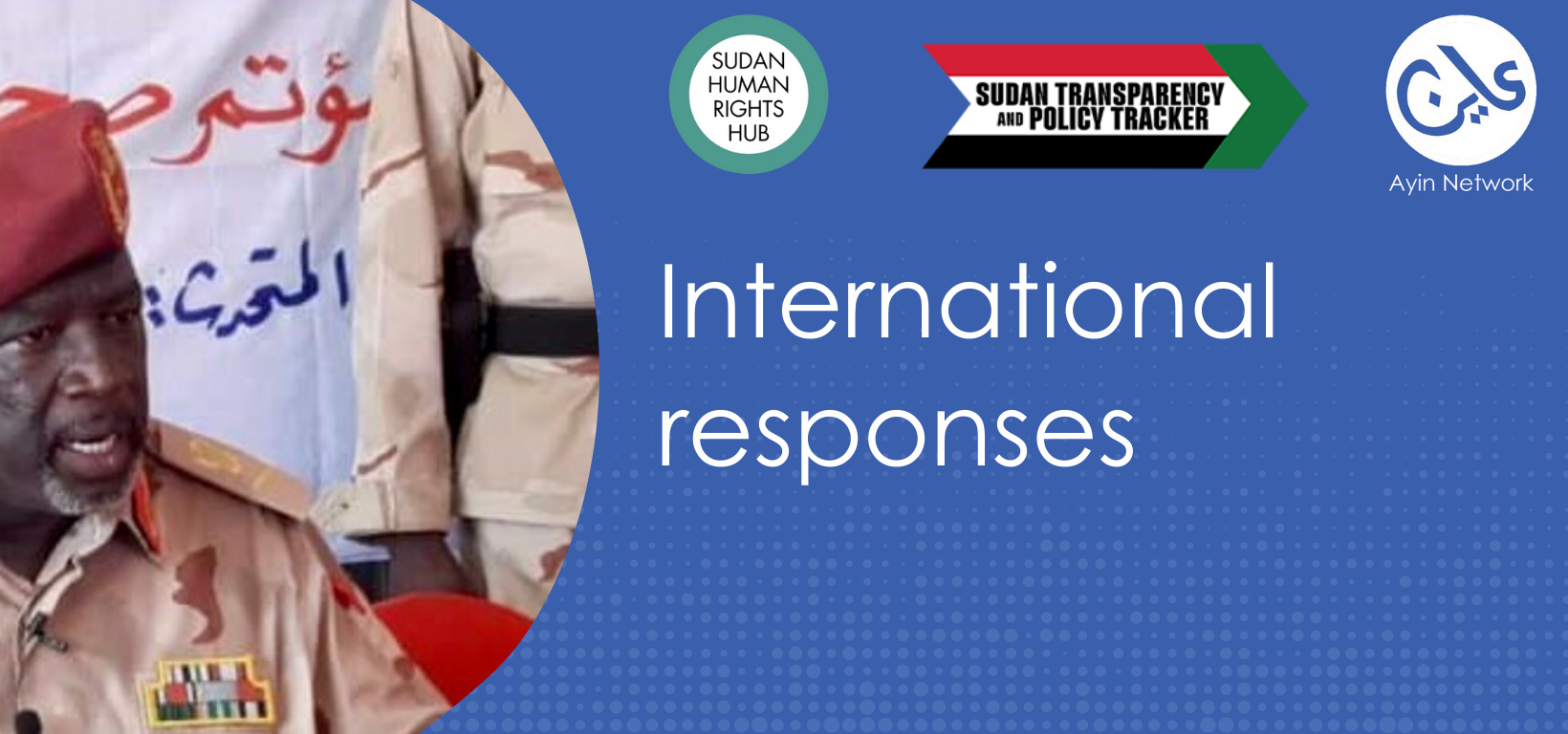 6. International response
6. International response
Efforts at accountability continue, but progress is uneven
On August 5, the prosecutor of the International Criminal Court, Karim Khan, briefed the UN Security Council on his ongoing investigations of international crimes committed in Darfur. He indicated that this investigation is focusing in particular on serious violations committed against children and sexual violence. He said he hoped to announce new arrest warrants by the end of the year.
However, the timeline is not clear, and many victims remain frustrated with the Court’s slow progress. Further, even if new cases are announced, it is unclear how the suspects would be apprehended, especially given the unwillingness of the Council to take action to support the Court’s work.
The Council has become more polarized about the Court since the prosecutor brought charges against senior Russian officials for crimes in Ukraine. With regard to the Sudan investigation, the Russian Federation responded to the prosecutor’s briefing calling the series of appearances “useless”, and “expressing outrage that since 2005 the Council has had to spend scarce time and resources every six months to consider them.”
Despite divisions in the Council, they will consider the extension of the sanctions regime which is currently set to expire on September 12. The Council may enact a technical rollover of the sanctions so that their expiration aligns with the mandate of the panel of experts that assists the Council with the analysis of the sanctions (which expires in March). In addition, the US has reportedly formally proposed sanctions against RSF head of operations Osman Mohamed Hamid Mohamed and RSF West Darfur Commander Abdel Rahman Juma Barkalla. If adopted, these would be the first UN sanctions imposed in relation to the current conflict.
There is also a joint African Commission on Human and Peoples’ Rights and African Union fact-finding mission that was created in August, but it has not yet started to work and it is not clear whether they will have the same mandate as the UN FFM for preserving evidence. The UN High Commissioner on Human Rights also has a Designated Expert on Sudan, who monitors the situation in Sudan and engages with the parties but does not conduct investigations. The Council will consider these and other factors in deciding whether or not to extend the mandate during the course of the session. There has been contention over the issue with some states preferring to allow the mandate to lapse and others advocating for its extension.



